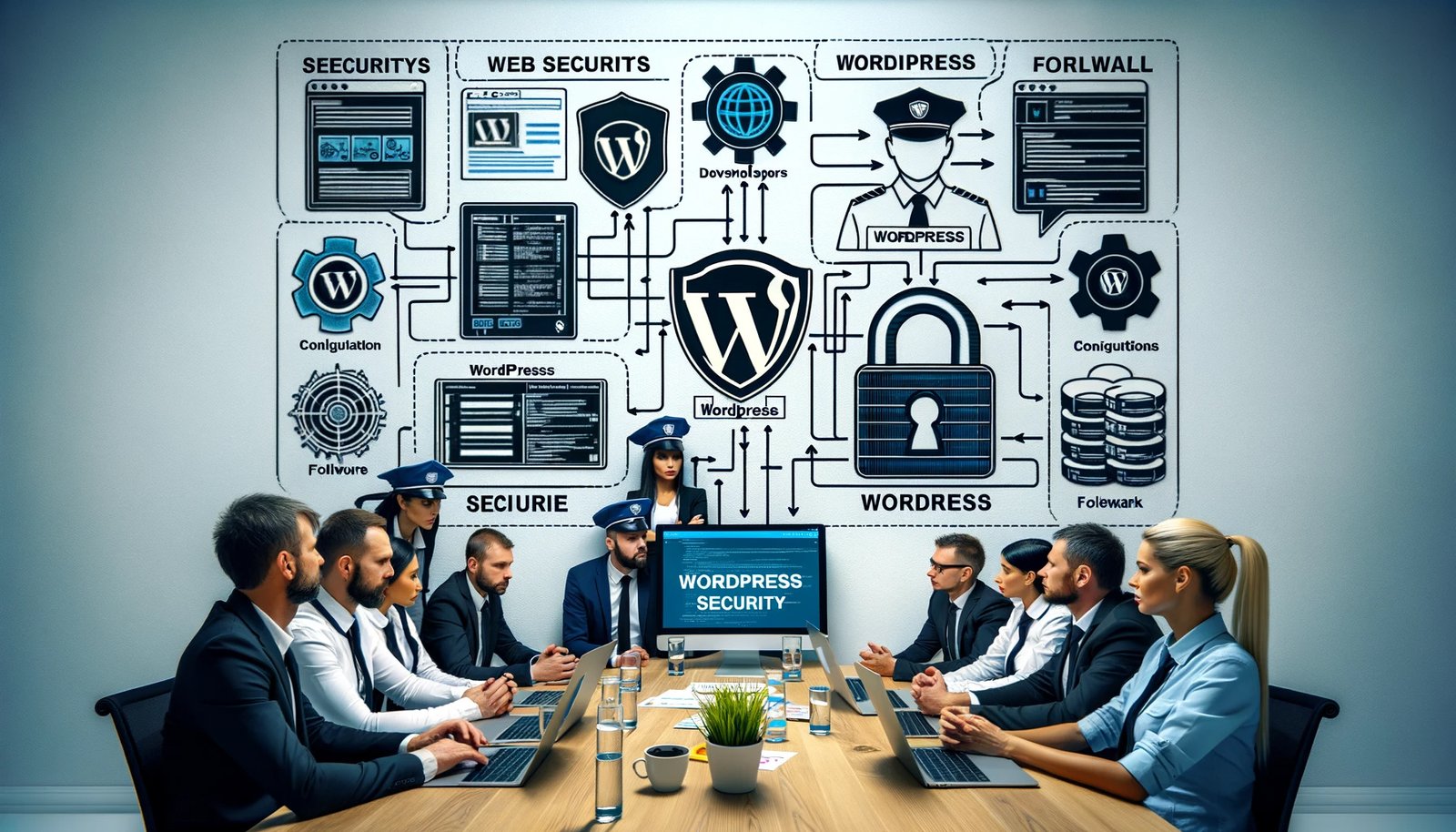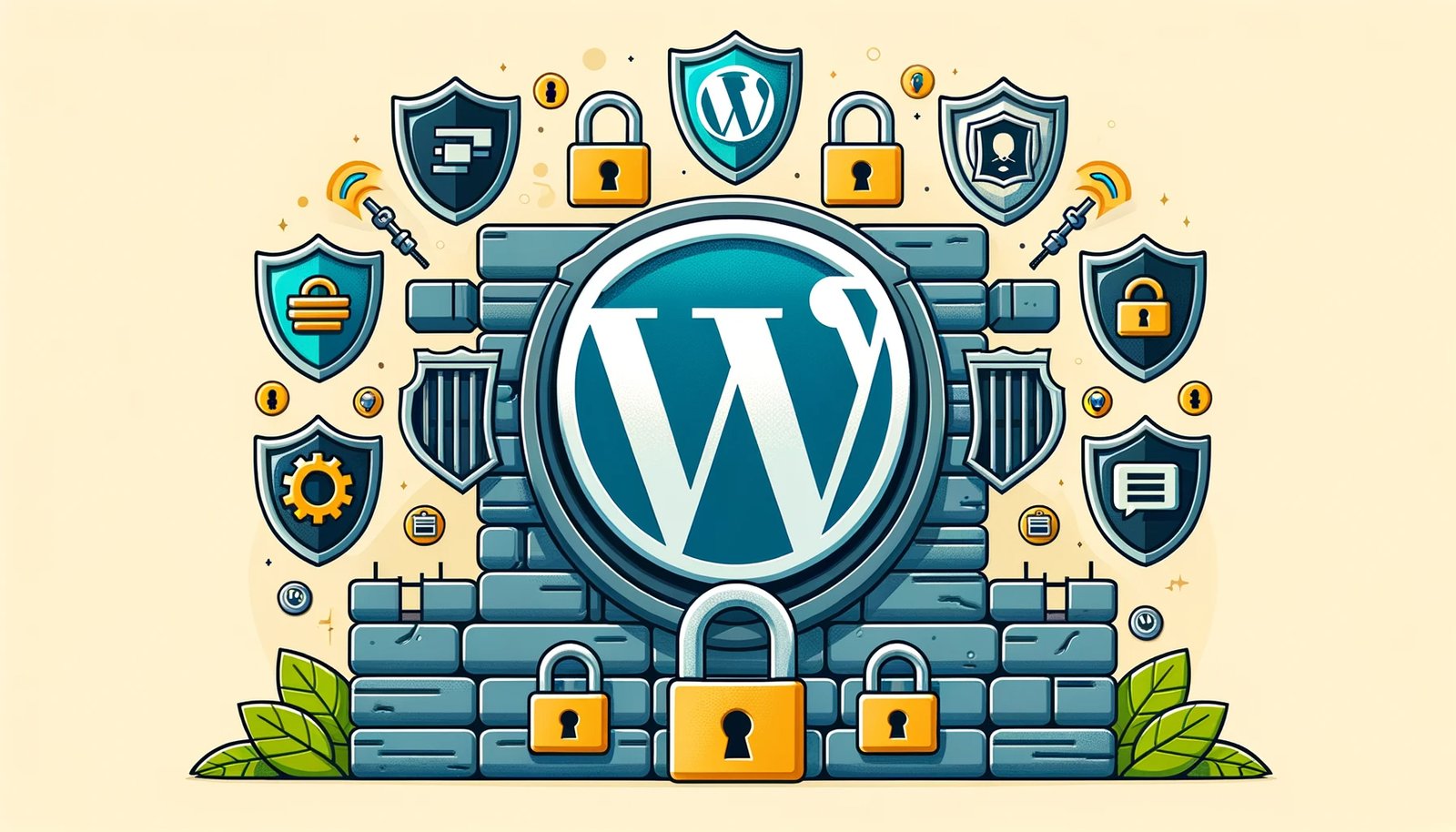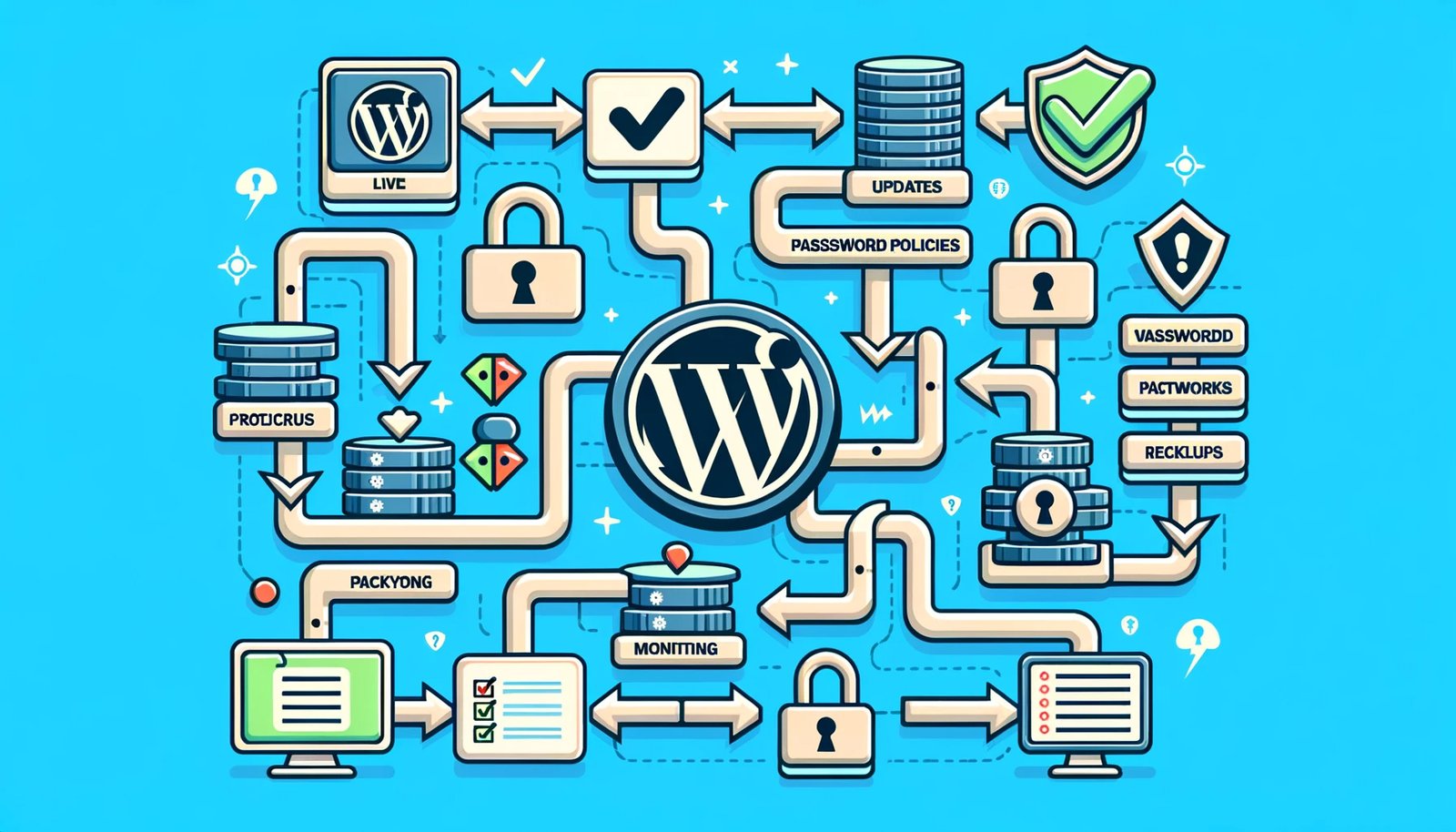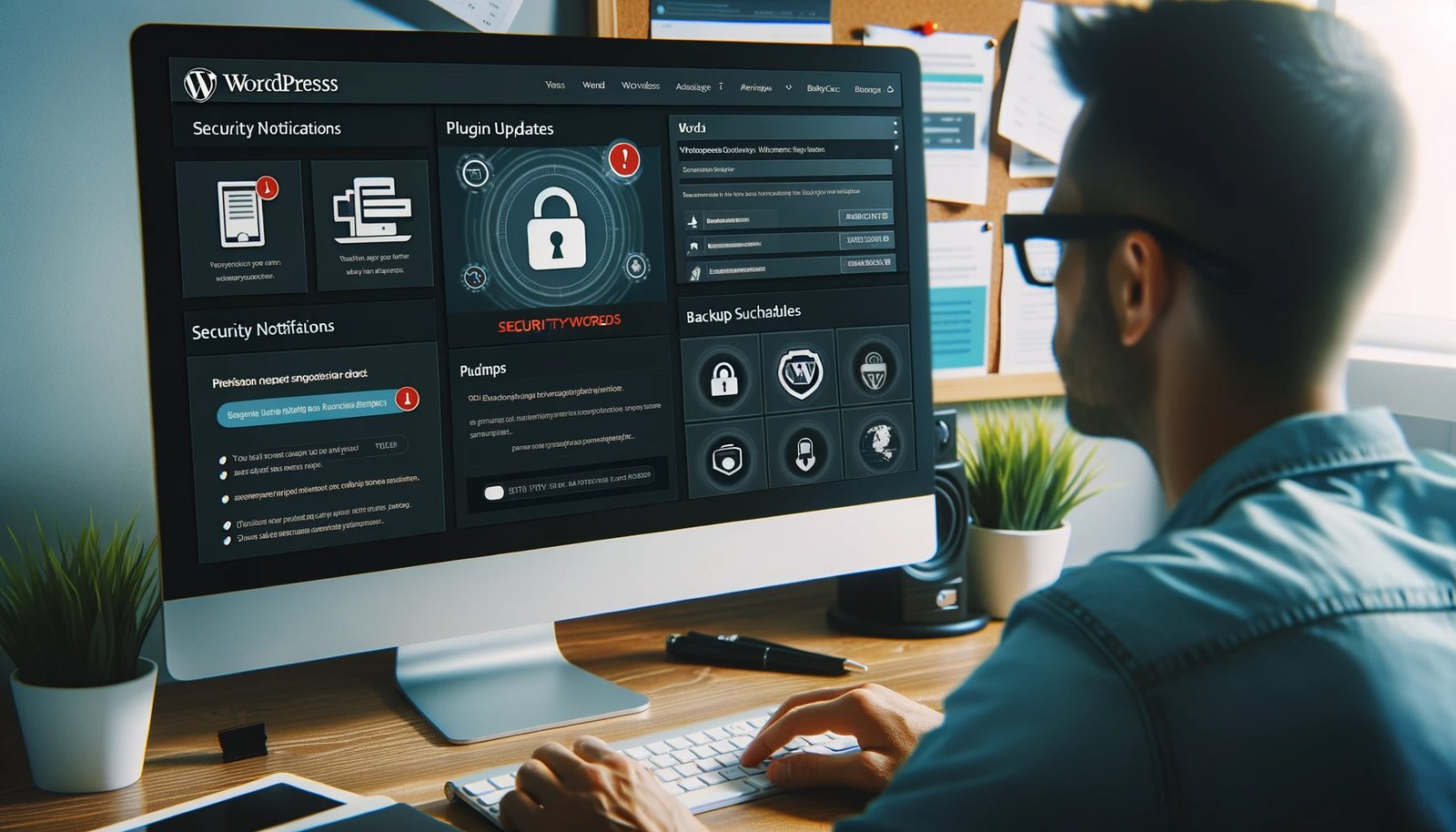Table of Contents
Toggle- Introduction – WordPress Web Development Security Best Practices
- How to Protect Your WordPress Website from Malware
- Strengthening Your WordPress Security
- Essential WordPress Security Tools
- Learning from Real-life Scenarios
- WordPress Security Best Practices for Beginners
- WordPress Security Best Practices for Large Enterprises
- Maintaining a Secure WordPress Environment
- How to Enable Two-Factor Authentication for Your WordPress Website
- Backup and Recovery
- Looking Ahead: WordPress Security in 2023
- Seeking Expertise and Continuous Improvement
- Conclusion
Securing Your Site: WordPress Web Development Security Best Practices
Introduction – WordPress Web Development Security Best Practices
In today’s digital age, the importance of website security cannot be overstated. With the increasing number of cyber threats, securing your website has become paramount. WordPress, being one of the most popular content management systems, faces its own set of unique security challenges. This article delves into the best practices for ensuring your WordPress website remains secure and resilient against potential threats.
Understanding the Threat Landscape
The digital realm is rife with potential threats. From hackers seeking vulnerabilities to exploit to malware that can cripple your site, understanding these threats is the first step in fortifying your website.
How to Secure Your WordPress Website from Hackers
Hackers employ a variety of techniques to breach websites. Recognizing these techniques is crucial. Some common hacking techniques include SQL injection, cross-site scripting, and brute force attacks. Counteracting them requires regular updates, using security plugins, and employing strong, unique passwords.

How to Protect Your WordPress Website from Malware
Malware can be particularly insidious, often operating in the background without the site owner’s knowledge. Identifying signs of malware includes monitoring for unexpected website behaviour, unauthorized ads, and suspicious server logs. Implementing protective measures such as using malware scanning tools, keeping all software updated, and using a reputable web host can significantly reduce the risk.
How to Prevent WordPress Website Data Breaches
Data breaches can be catastrophic, leading to the loss of sensitive user data. Ensuring data integrity and confidentiality is paramount. This can be achieved by using SSL certificates, regularly backing up data, and restricting user permissions.
Strengthening Your WordPress Security
A multi-layered approach to security is the most effective way to protect your website.
How to Harden Your WordPress Website Security
Hardening your WordPress website involves implementing layers of security measures for comprehensive protection. This includes disabling directory listings, limiting login attempts, and using security plugins like Wordfence.
How to Improve WordPress Website Security Performance
While security is essential, it shouldn’t come at the cost of performance. Balancing security measures without compromising site speed is crucial. Techniques include using content delivery networks (CDNs), optimizing images, and employing lazy loading.
Essential WordPress Security Tools
In the vast ecosystem of WordPress, numerous tools and plugins can enhance your website’s security. These tools are designed to address specific vulnerabilities and offer solutions tailored to WordPress.
Best WordPress Security Plugins
- Wordfence: One of the most popular WordPress security plugins, Wordfence offers a range of features, from firewall protection to malware scans. It’s essential for any WordPress Business Websites looking to bolster their security.
- Sucuri Security: This plugin offers various security features, including malware scanning and security hardening. It’s particularly beneficial for WordPress E-commerce Website Development.
- iThemes Security: Designed for WordPress web development best practices, this plugin offers multiple ways to protect your website, from brute force protection to 404 detections.
Best WordPress Security Themes
- Astra: Known for its speed and lightweight design, Astra also places a strong emphasis on security. It’s a top choice for WordPress Consulting Websites.
- Divi: Beyond its flexibility and design capabilities, Divi has built-in security measures, making it a favourite for WordPress Personal Websites.
- OceanWP: This theme is built with clean code and adheres to WordPress web development best practices, ensuring that your website remains secure and optimized.
Learning from Real-life Scenarios
Understanding past security breaches can provide invaluable lessons. By analyzing these incidents, one can better prepare and implement measures to prevent similar occurrences.
WordPress Security Case Studies
- The Pharma Hack: This infamous hack involved SEO spam where hackers would inject pharmaceutical keywords into a site, affecting its Content SEO. The breach taught many the importance of regular site audits.
- Backdoor Exploits: Several WordPress Blog Websites fell victim to backdoor exploits, where hackers would gain unauthorized access. This highlighted the need for regular updates and monitoring.
- DDoS Attacks: Large-scale WordPress Gym and Fitness Websites have been targets of DDoS attacks, emphasizing the importance of robust hosting solutions and security configurations.
Tailored Security Practices
Security isn’t one-size-fits-all. Depending on the nature and scale of your website, your security measures will vary.
WordPress Security Best Practices for Beginners
New to WordPress? It’s crucial to start on the right foot. Implementing foundational security measures can prevent many common threats. Ensure you’re using strong passwords, keeping your themes and plugins updated, and investing in a good WordPress security plugin.
WordPress Security Best Practices for Small Businesses
For WordPress Roofing Websites or other small business platforms, resources might be limited. However, security can’t be compromised. Prioritize core security measures, such as regular backups, SSL certificates, and user role definitions.
- Prioritizing essential security measures, such as SSL certificates.
- Emphasizing local SEO to ensure genuine local traffic and reduce suspicious activities.
- Regularly backing up the website to quickly restore it in case of breaches.

WordPress Security Best Practices for Large Enterprises
Large enterprises often manage multiple WordPress web development sites, each with its unique challenges. The stakes are higher, with more data and customer trust on the line.
- Regular Security Audits: Large WordPress Real Estate Websites or corporate portals should undergo frequent security audits. This ensures that vulnerabilities are identified and rectified promptly.
- Dedicated Security Teams: Consider hiring a dedicated team or WordPress Security Expert to monitor and manage security. Their expertise can be invaluable in preventing and responding to threats.
- Custom Security Solutions: Off-the-shelf solutions might not suffice. Tailored security solutions, specific to the enterprise’s needs, can offer more robust protection.
WordPress Security Best Practices for Specific Industries and Niches
Different industries have unique security requirements. A WordPress Medical Website will have different concerns compared to a WordPress Photography Website.
- Healthcare: With patient data and sensitive information, healthcare websites must adhere to strict regulations. Regular audits, encrypted data storage, and secure communication channels are paramount.
- E-commerce: WordPress E-commerce Website Development sites handle financial transactions, making them prime targets. Secure payment gateways, SSL certificates, and regular malware scans are essential.
- Education: WordPress Learning Websites (LMS) store vast amounts of student data. Ensuring data integrity, secure login mechanisms, and protection against DDoS attacks are crucial.
Maintaining a Secure WordPress Environment
Ongoing maintenance is the key to a secure WordPress environment. It’s not just about setting up security measures but ensuring they remain effective over time.
How to Keep Your WordPress Website Software Up to Date
Regular updates are a cornerstone of WordPress web development best practices. WordPress, along with its themes and plugins, frequently releases updates to patch vulnerabilities.
- Automated Updates: Set your WordPress site to automatically update. This ensures you’re always running the latest, most secure version.
- Testing: Before applying major updates, especially for WordPress Custom WordPress Development, test them in a staging environment. This prevents potential conflicts or issues on your live site.
How to Use Strong Passwords for Your WordPress Website
Passwords are often the first line of defence. Brute force attacks can easily exploit weak passwords.
- Password Managers: Tools like LastPass or Dashlane can generate and store complex passwords, enhancing security for WordPress Personal Websites and beyond.
- Regular Changes: Encourage users, especially those with administrative privileges, to change their passwords regularly.
How to Enable Two-Factor Authentication for Your WordPress Website
Two-factor authentication (2FA) adds an extra layer of security, ensuring that even if a password is compromised, unauthorized access is still prevented.
- 2FA Plugins: There are numerous plugins available for WordPress that enable 2FA. By integrating these into your WordPress Blog Websites, you can ensure a higher level of login security.
- User Education: It’s essential to educate users about the importance of 2FA. Whether you’re running a WordPress Gym and Fitness Website or a WordPress Tour and Travel Website, ensuring users understand and use 2FA is crucial.
How to Restrict Access to Your WordPress Website Dashboard
The WordPress dashboard is the control centre of your website. Restricting access to it is a fundamental security measure.
- User Roles: WordPress offers different user roles, from administrators to subscribers. Assign roles judiciously, ensuring that only essential personnel have high-level access.
- IP Allowlisting: Only allow specific IP addresses to access the dashboard. This is especially useful for WordPress web development services that have a fixed IP.
How to Monitor Your WordPress Website for Security Threats
Real-time monitoring can help you detect and counteract threats as they happen, safeguarding your WordPress Energy Saving Websites or any other niche site.
- Security Plugins: Plugins like Sucuri or Wordfence offer real-time monitoring, sending alerts for suspicious activities on your WordPress Spa Websites or WordPress Makeup and Beauty Websites.
- Regular Reviews: Periodically review user activity logs. Unusual patterns can often indicate a security breach or an attempted hack.
Backup and Recovery
No matter how secure your website is, there’s always a risk. Having a robust backup and recovery plan ensures that you can quickly restore your site in case of any mishaps.
How to Back Up Your WordPress Website Regularly
Regular backups are a safety net, ensuring that you can quickly restore your site if needed.
- Backup Plugins: Tools like UpdraftPlus or BackupBuddy can automate the backup process for your WordPress Transport Websites, ensuring that you always have a recent backup on hand.
- Offsite Storage: Store backups in multiple locations, including offsite options like Dropbox or Google Drive. This ensures that even if your server faces issues, your WordPress E-commerce Website Development data is safe.
How to Recover from a WordPress Website Hack
In the unfortunate event of a hack, swift action can minimize damage.
- Clean Installation: If your WordPress Custom WordPress Development site is compromised, consider a clean installation. This ensures that all malicious code is removed.
- Seek Expert Help: If you’re unsure about the recovery process, consider hiring a WordPress Security Expert to guide you through the recovery.
Looking Ahead: WordPress Security in 2023
As technology evolves, so do the threats that websites face. Staying updated with the latest security trends is essential for any WordPress web development project.
WordPress Security Trends for 2023
The digital landscape is ever-changing, and 2023 promises new advancements in WordPress security.
- AI and Machine Learning: With the integration of AI, WordPress web development trends in 2023 will likely see smarter security plugins that can predict and counteract threats before they materialize.
- Decentralized Security Protocols: With the rise of blockchain and decentralized platforms, we might see a shift towards decentralized security measures, especially for WordPress E-commerce Website Development.
Seeking Expertise and Continuous Improvement
Security isn’t a one-time task. It requires continuous effort, learning, and adaptation.
How to Hire a WordPress Security Expert to Help You Secure Your Website
Not everyone is a security expert, but everyone can hire one.
- Look for Experience: When hiring an expert for your WordPress Personal Website, ensure they have a proven track record in WordPress security.
- Check Reviews: Platforms like Fiverr offer reviews that can give you insight into an expert’s reliability and expertise.
How to Manage the WordPress Security Process
Managing security is an ongoing process, especially for dynamic sites like WordPress Blog Websites.
- Regular Audits: Schedule periodic security audits. Tools and plugins can help automate this for your WordPress Photography Websites.
- Stay Updated: Ensure all plugins, themes, and the WordPress core are updated regularly. This is especially crucial for specialized sites, like WordPress Learning Websites (LMS).

How to Test the Security of Your WordPress Website
Testing is a proactive approach to ensure your site’s defences are robust.
- Penetration Testing: Hire experts to simulate attacks on your WordPress Roofing Websites to identify vulnerabilities.
- Use Security Scanners: Tools like Sucuri can scan your WordPress Medical Websites for malware and other threats.
How to Launch a Secure WordPress Website
Before making your site live, ensure it’s fortified against potential threats.
- Final Security Checks: Before launching your WordPress Consulting Website, run a comprehensive security check to ensure no vulnerabilities exist.
- Educate Your Team: If you have a team managing your WordPress Pet Website, ensure they’re educated about best security practices.
Conclusion
The digital realm of 2023 offers immense possibilities, but it also brings unique challenges. The ongoing journey of WordPress security underscores the importance of vigilance. Whether you’re running a WordPress Real Estate Website or a WordPress Job Website, embracing the latest security practices is not just recommended; it’s essential.
-
- What are the most common security threats faced by WordPress websites?
- An overview of prevalent vulnerabilities and attacks targeting WordPress sites.
- Why is it essential to keep my WordPress core, themes, and plugins updated?
- Explain the relationship between updates and security patches and how they protect against known vulnerabilities.
- How can I choose secure plugins and themes for my WordPress site?
- Guidelines for selecting reputable and well-coded plugins and themes to minimize security risks.
- What are the best security plugins for WordPress in 2023?
- Highlighting top-rated and widely-used security plugins that offer comprehensive protection.
- How can I protect my WordPress admin area from unauthorized access?
- Discussing methods like strong passwords, two-factor authentication, and changing the default “wp-admin” URL.
- Why is it crucial to have a reliable backup solution for my WordPress site?
- Emphasizing the importance of regular backups in case of hacks, errors, or data loss and recommending backup solutions.
- How can I secure my WordPress database?
- Tips on database prefix changes, user privileges, and using database security plugins.
- What measures can I take to prevent brute-force attacks on my WordPress site?
- Introducing solutions like limiting login attempts, using CAPTCHAs, and monitoring failed login attempts.
- How can I ensure secure data transmission on my WordPress website?
- Explaining the importance of SSL certificates and how they encrypt data between the user’s browser and the server.
- What are the best practices for user role and permission management in WordPress?
- Guidelines for assigning appropriate user roles, limiting access, and understanding the capabilities of each role.







